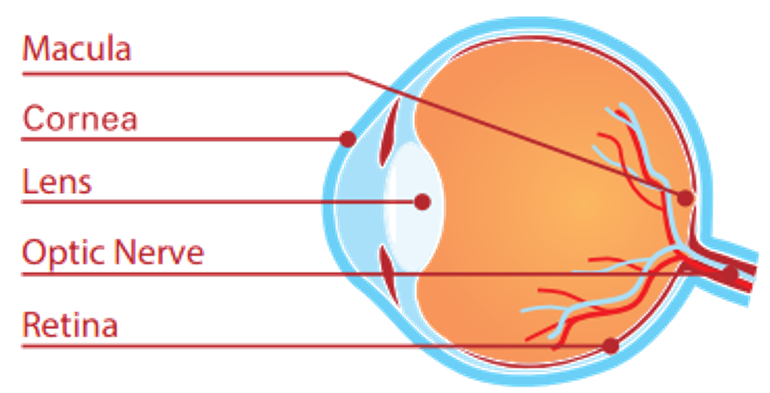COVID-19 Causing an increase in blue light exposure
Posted on January 4, 2021 in Vision Health

COVID-19 is affecting more than just how much time you are spending at home, how often you wear a mask, and how often we get to see people in person. It could be affecting your vision as well. With many people working from home right now, and many kids attending school online, we are all spending more time in front of digital screens. From TVs to tablets, phones to computers, our screen time usage has gone up quite a bit since the start of COVID-19 restrictions in early 2020. With the increased levels of screen time in both adults and children, our eyes are being exposed to increased levels of blue light , with blue light having negative effects on our eyes and vision.
Consequences of blue light on our eyes

According to Dr. Chad Overman, vision director for Delta Dental of Iowa, “blue light is absorbed in the back of the eye.” This is where your retina is located. Prolonged exposure to blue light can then increase the chances of macular degeneration, which is caused by damage to the retina. There are many other problems that blue light from screens can potentially cause such as:
- Eye fatigue
- Dry eyes
- Suppression of melatonin which aids sleep
Little is known on the long-term effects of too much blue light on our eyes from increased screen time, but the damaging effects could take a huge toll on our eyes and vision if some preventive actions aren’t taken.
What can you do to protect your eyes from blue light?
There are some easy things you and your family can do to limit, or block, the amount of blue light coming into our eyes that can offset the amount of damage to our eyes and vision. Here are a few tips from Dr. Overman:
- Put a blue light blocking lens in your glasses, or wear special blue blocking glasses when a prescription is not needed.
- Get a blue light blocking cover for your computer screen.
- When shopping for a new computer screen, look for one that has anti-glare and blue light blocking
- Limit screen time, especially at night, but also take regular breaks from your screens and devices.
- Utilize the 20-20-20 rule: take a break every 20 minutes for 20 seconds and focus on something 20 feet away.
In addition to these measures, it’s equally important for you and your family to visit your optometrist at least once per year for an annual eye exam. This way, you can detect problems earlier before they become bigger problems and get the best advice on how to handle blue light and other harmful effects on your eyes and vision.
Read our article HERE on preparing for your next eye exam during COVID-19.
Learn more HERE about our vision plans for you and your family.